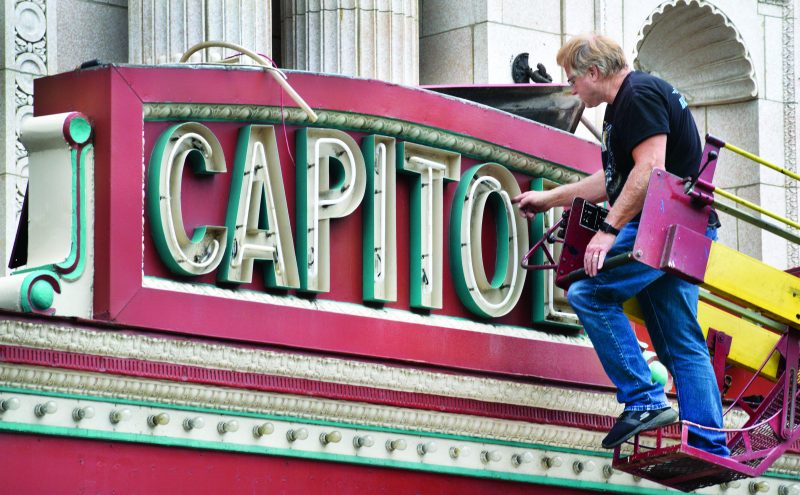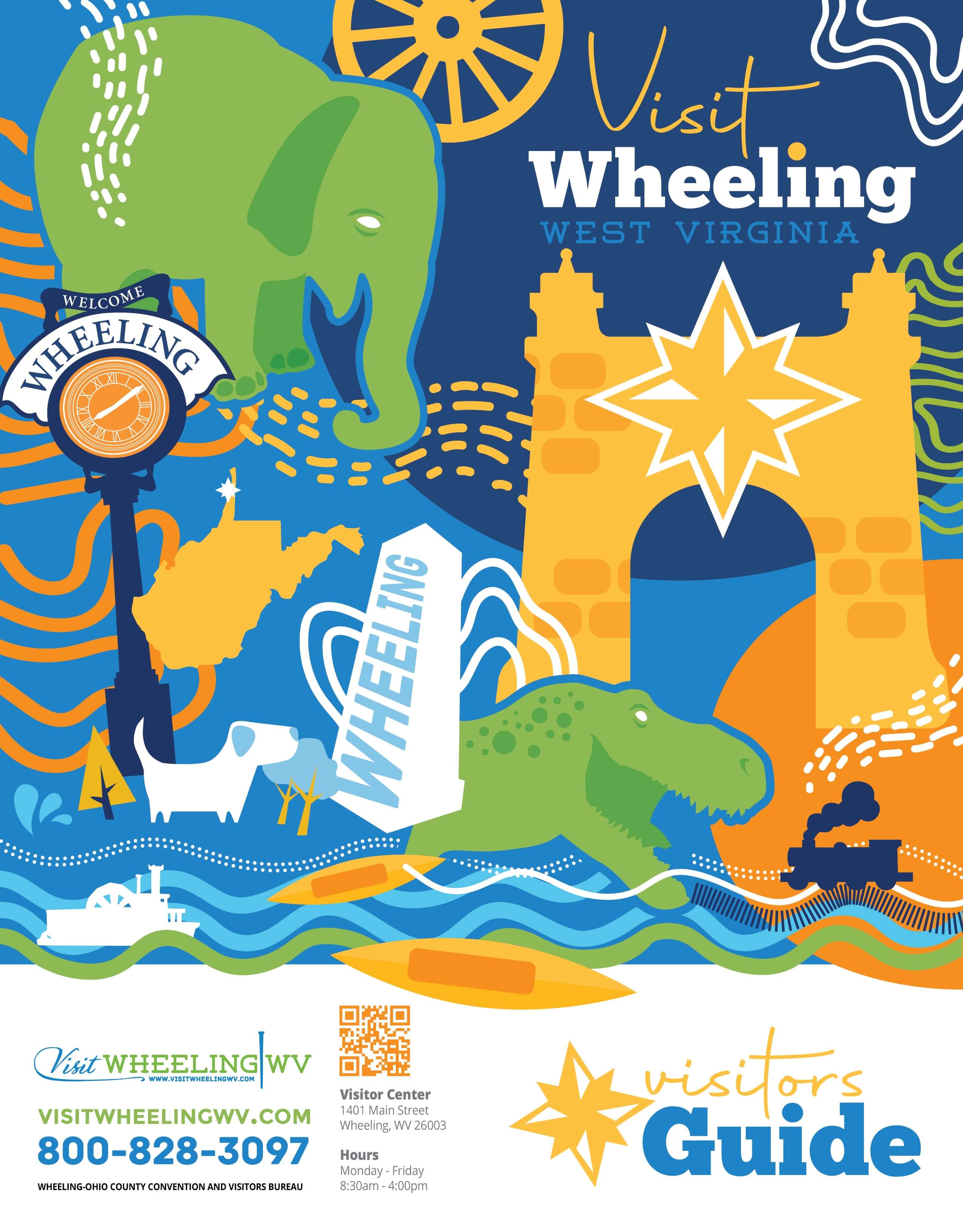
Pandemic Hitting Tourism Industry In Wheeling Hard
WHEELING — The impacts of the COVID-19 pandemic have been far-reaching and have affected everyone, but few industries have taken the hit like the travel and tourism industry.
In a typical summer, the city of Wheeling is bustling with activities with people pouring into town for shows and concerts to packed waterfront events at Wheeling Heritage Port nearly every weekend.
Not so in 2020.
Last week, the Wheeling Finance Committee of Council reviewed revenue losses directly related to the coronavirus pandemic for the month of July. The most significant loss was in hotel-motel revenues, which were down $46,000 compared to July of the previous year, officials said.
That wasn’t even the worst month, according to Frank O’Brien, executive director of the Wheeling-Ohio County Convention and Visitors Bureau, which is funded exclusively through the hotel-motel or bed tax revenues.
“Once the pandemic was declared and mandates were issued by the government not to travel and to stay home, the tourism industry was the first to be impacted,” O’Brien said Tuesday.
Figures for hotel-motel tax revenues are reported a month behind, so the first big hit came in May when numbers were reported for April — a month when shelter-in-place mandates were in full swing.
“That was the worst month we’ve had in the history of the Wheeling CVB,” O’Brien said. “We lost about 80 percent of the income we normally would get in that month when you compare it to last year.”
Conversely, 2019 had been a banner year for the tourism industry as a whole and for hotel/motel tax revenues in general, and the Wheeling CVB was marketing events in high gear.
“Hundreds of thousands of dollars were put into advertising last year to bring people to the Wheeling area,” O’Brien said, noting that their operation has changed dramatically since then because of the pandemic. “Obviously, the first thing that disappears is our marketing campaign.”
Major blows to tourism activities came from initial travel restrictions, with follow-up punches of social distancing regulations and public gathering limits, few events and activities to attend, and concerns over taking part in activities even when all possible safety precautions are put in place.
“When no one was allowed to travel, it was just unprecedented,” O’Brien said. “There’s nothing to compare this with. Everybody is impacted the same way in the tourism industry throughout the country and even the world. The tourism industry has been devastated.”
O’Brien said originally, the strategy to address the pandemic was to “flatten the curve.” However, six months into it, he said he sees a very slow recovery process, but one that is starting to come.
“I do see some trends returning,” he said. “We are seeing good indicators that people are having more confidence, especially after being locked in their homes and not being able to go anywhere for the last couple of months. They want to get out again. People need to get out. I think that if people can follow the basic safety procedures — wearing masks, washing hands, social distancing — those are things that if everybody is doing it, we should be able to get back to where we were and flatten the curve of the virus.”
Hotels, resorts and restaurants are changing their routines in light of the pandemic. Public places are very strategically and even more thoroughly cleaned in their common areas, food service operations have dramatically changed, and buffets seem like a thing of the past, O’Brien noted.
“The whole country has changed, and Wheeling is no exception,” he said.
Because of the reduction in marketing revenue — and for lack of events to promote — the Wheeling CVB created a new message during the pandemic.
“We continue to market the fact that Wheeling had survived a number of challenges in its 250-year history, and we’re going to survive this one,” O’Brien said. “When people are ready to come back, we’re going to be ready to welcome them with open arms.”
Traffic continues to be way down at the Wheeling Visitors Center, but has started to pick up just a hair, O’Brien said. There are events still happening, and safety precautions are being put in place, which is another message that is being stressed to potential visitors.
“People are searching for things to do at this point in time, and the better we can get our message out that we are prepared to do the things necessary to keep people safe, I think that makes people feel a little bit better in coming back to Wheeling,” O’Brien said.
Although most downtown and waterfront events have disappeared, Oglebay still has successful events and is even planning a full slate of activities for Labor Day Weekend.
“Because of their 1,700-plus acres, they can socially distance and still provide some of the amenities they’ve had in the past, which is great,” O’Brien said, adding that Fort Henry Days appears to be on tap as well, and October events may also be around the corner.
The loss of waterfront events, as well as the regular operations at the Capitol Theatre and WesBanco Arena, continue to serve a major blow to the local economy.
“These are our performance venues in the downtown market which drives hundreds of thousands of people to Wheeling every single year,” O’Brien said. “When 50,000 people come to a venue during the course of one year, the economic impact generated by those folks is $3 million to $5 million.”
Those people who come to Wheeling for special events spend money on tickets, meals at restaurants, rooms at hotels, parking, gasoline and other expenses.
“So when we have hundreds of thousands of people not coming to Wheeling because all of the events had to be canceled, the negative economic impact is going to be long-run,” O’Brien said.
Even events that originally had been re-scheduled for later this year have had to cancel again, such as the popular rodeo at WesBanco Arena, which is a huge draw and a major economic driver, O’Brien noted. The lights have been out at the Capitol Theatre since mid-March, and the Wheeling CVB is looking at ways to safely reopen it down the road.
One good thing to consider for the Wheeling CVB is the fact that things could be much worse had the pandemic come earlier.
“We used to have debt service on the Capitol Theatre,” O’Brien explained. “The CVB bought it 10 years ago. For 10 years, we had monthly payments of $22,500 for the Capitol. Had we not retired the debt last year in July and still had that debt today, we’d be upside down — we’d be in serious, serious trouble at that point.”
The Wheeling CVB is a 501(c)6 private, non-profit corporation similar to an operation like a chamber of commerce. They do not pay income tax or revenue tax, but they do pay sales tax. Their funding mechanism is set by the state. There is a 6-percent hotel-motel tax in the greater Wheeling area, and the CVB gets half of that for its marketing efforts, while the taxing authority, in this case the city of Wheeling and the Ohio County Commission, receives the other half. Visitors also pay a 6-percent sales tax when they stay in the area.
Although certain federal CARES (Coronavirus Aid, Relief and Economic Security) Act money was made available to non profit organizations that are designated as 501(c)3 entities, the 501(c)6 corporations were not eligible for these relief funds.
“We’re able to get through without taking any additional loans out at this point,” O’Brien said. “We have that option, but our board has given good direction in saying if we don’t need the money, let’s not take it. We don’t need another loan to pay.”
O’Brien said that while the Wheeling CVB is able to cover its administrative and operating costs with funding within normal limits, the big impact from the COVID-19 impact has been on marketing, which still is an ongoing effort but is taking place at a greatly reduced level currently.
“We’re seeing trends of people traveling in more one-tank trips,” he said. “Within a one-tank drive to Wheeling, there’s about 20 million people. So we have a great opportunity for local and regional people to find Wheeling if they’ve never found it in the past. We are going to continue to market and advertise and ask people to visit us, but obviously put it around the COVID mandates. That’s what we’re working on.”
It may be a couple of years before the tourism industry returns to what was known as “normal” before the pandemic hit, O’Brien predicted.
“There’s got to be some light at the end of the tunnel,” he said. “The tourism industry was the first hit, and it’s going to be the last to return to the way it was.”
- Tim McClellan, owner of McClellan Sign Company of Wheeling, is shown fixing the Capitol Theatre’s marquee in this 2019 file photo.
- Article Written By: Eric Ayers with The Intelligencer and Wheeling News-Register
